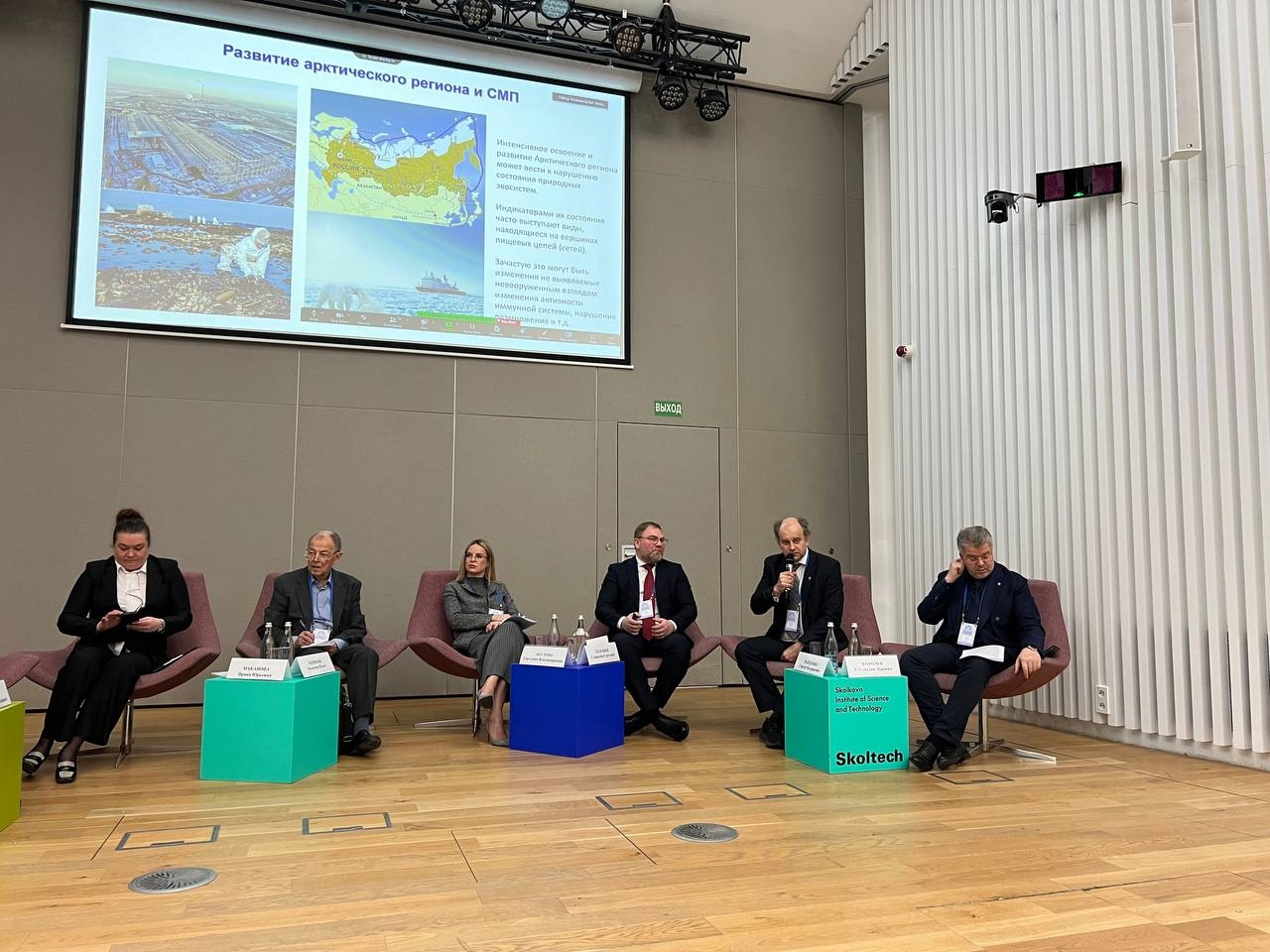
The conference was held in Moscow from March 19 to 21, 2024. One of the main topics of the conference was the study and conservation of the polar bear and other Arctic mammals.
At the plenary session “Conservation of the Arctic: Strategic Priorities”, the director of the Institute of Ecology and Evolution of the Russian Academy of Sciences, corresponding member of RAS S.V. Naidenko discussed the topic “Study and monitoring of the current state of large mammals and birds of the Russian Arctic (within the framework of biodiversity conservation programs).”
The moderator of the working session “Scientific research of marine mammals and other animals in the Arctic” was D.M. Glazov, leading engineer of the IEE RAS, executive director of the Council of Marine Mammals. Also participating in this session was Ph.D. M.A. Solovyova, head of scientific work on research programs for seals (Laboratory of Behavior and Behavioral Ecology of Mammals of the Institute of Ecology and Evolution of the Russian Academy of Sciences). During this working session, the state of marine mammals and other Arctic vertebrate species, methods for studying them, including tagging, measures aimed at their conservation and sustainable use, results of monitoring, population surveys, and the results of special expeditions to study marine mammals were discussed.
N.G. Platonov, Ph.D., senior researcher at the Institute of Ecology and Evolution of the Russian Academy of Sciences, (Cabinet of Earth Remote Sensing Methods and Thematic Interpretation in Ecology) took part in the work session “Studying the biology and monitoring of the polar bear.” This part of the conference presented the results of research into the biology and ecology of the polar bear, diseases faced by the polar bear, the consequences of pollution of the polar bear’s habitat, and the level of contamination of the biological tissues and organs of the polar bear.
I.N. Mordvintsev, Ph.D., leading researcher at the Institute of Ecology and Evolution of the Russian Academy of Sciences, received a letter of gratitude from the Ministry of Natural Resources and Ecology of the Russian Federation.
During the conference, the participants signed a framework “Agreement on interaction on issues of environmentally friendly and safe development of protected areas, professional and public monitoring, development of the voluntary movement, popular science and ecological tourism, civil science, training and education.” Also within the framework of the conference, an “Agreement on cooperation on conducting scientific research on the Chukotka-Alaskan polar bear population, developing measures and finding solutions for the conservation of the polar bear and carrying out environmental protection and rehabilitation measures for habitats, implementing projects aimed at monitoring the polar bear and solving conflict situations “man-polar bear”, including with the involvement of local and indigenous residents and volunteers.” You can view photos of the VII International Scientific and Practical Conference “The Universe of the Polar Bear: Arctic Ecosystems” by following the link.
Related materials:
Nature.Kremlin: "The conference "The Universe of the Polar Bear: Arctic Ecosystems" started in Moscow and Chukotka"
Meteonews: "Russian scientists presented new data on the study of the Arctic"
TASS. Science: “The neural network counted almost 180 polar bears on the Bear Islands in Yakuti”
